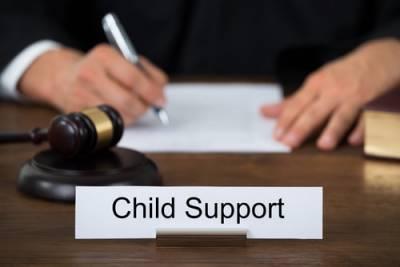Recent Blog Posts
What to Keep in Mind As You Create a Prenuptial Agreement in Illinois
 A prenuptial agreement is a legal document that couples sign before they get married, which outlines how they will divide their assets and debts if they get divorced. While it may not be the most romantic topic to discuss before a wedding, creating a prenuptial agreement can be a wise decision for many couples.
A prenuptial agreement is a legal document that couples sign before they get married, which outlines how they will divide their assets and debts if they get divorced. While it may not be the most romantic topic to discuss before a wedding, creating a prenuptial agreement can be a wise decision for many couples.
Before you draft a prenuptial agreement in Illinois, there are some important factors to consider.
Discussing the Prenuptial Agreement with Your Partner
One of the most critical factors to consider when creating a prenuptial agreement is communication with your partner. Discussing the prenuptial agreement openly and honestly with your partner is essential. You should explain why you believe a prenuptial agreement is necessary and listen to your partner’s concerns and opinions. Remember, the prenuptial agreement is not just about protecting your assets, but it is also about protecting your partner’s interests.
Illinois Divorce and Taxes: What You Need to Know Before You Sign on the Dotted Line
 Divorce can be a difficult and stressful process, and the last thing you want is to be hit with unexpected tax obligations after the fact. If you are going through a divorce, considering your decisions’ tax implications before finalizing a settlement is essential.
Divorce can be a difficult and stressful process, and the last thing you want is to be hit with unexpected tax obligations after the fact. If you are going through a divorce, considering your decisions’ tax implications before finalizing a settlement is essential.
Below are some key tax issues that arise during an Illinois divorce and offer tips for minimizing tax obligations.
Tax Implications of Divorce in Illinois
Divorce can have significant tax implications, particularly regarding property division, alimony, and child support.
Here is an example to put this into perspective. Under current Illinois laws, spousal maintenance payments are not tax deductible for either the payer or the recipient. This means that the payer will bear the full tax burden of these payments, which may lead to them seeking a lower maintenance payment amount. Without the benefit of a tax deduction, paying spousal maintenance can be a significant financial burden.
How to Protect Your Business During a Divorce in Illinois
 If you are a business owner going through a divorce, you are likely concerned about how your business will be affected. Fortunately, there are steps you can take to protect your business during a divorce in Illinois. Here is what you need to know:
If you are a business owner going through a divorce, you are likely concerned about how your business will be affected. Fortunately, there are steps you can take to protect your business during a divorce in Illinois. Here is what you need to know:
Identify the Whether the Business is Marital or Non-Marital Property
Non-marital property is property that is not subject to division in a divorce. It includes property that was acquired before the marriage, property that was gifted or inherited, and property that is identified as non-marital in a prenuptial agreement or postnuptial agreement. If you have documentation showing that you started the business before marriage and did not use marital assets to finance or maintain it, this can be used as evidence to establish that your business is non-marital property. However, if you did not keep good records, it can be more challenging to prove that your business is non-marital.
3 Common Mistakes to Avoid During a Divorce in Illinois
 Divorce can be a complicated and emotional process, and mistakes made during this time can have significant consequences. That is why it is crucial to understand common mistakes to avoid, so you can be better prepared for what lies ahead.
Divorce can be a complicated and emotional process, and mistakes made during this time can have significant consequences. That is why it is crucial to understand common mistakes to avoid, so you can be better prepared for what lies ahead.
In this blog post, we will cover some of the most common mistakes people make during a divorce and offer tips for avoiding them. Whether you are just starting the divorce process or are in the midst of it, this information will be valuable to you.
Mistake #1: Failure to Disclose All Assets and Liabilities
Another common mistake in divorce is failing to disclose all assets and liabilities. Full disclosure of assets and debts is required by law, and hiding or failing to disclose assets can have serious legal consequences. Failure to disclose all assets and liabilities can result in a court invalidating the entire divorce agreement and may lead to financial penalties.
How to avoid this mistake: Provide your attorney with a complete and accurate list of all assets and debts. Include everything, from bank accounts and investments to real estate and personal property. Accurate disclosure is essential to ensuring a fair and equitable division of assets.
Professionals That Can Help You Gain a Better Divorce Outcome
 In the best of circumstances, a couple agrees to end their marriage and is able to come to an agreement on all the issues involved in that decision, as well. Unfortunately, the reality is that when many couples reach the point to end their marriage, it is often the only thing they do agree on. The divorce process then turns into a battle over child custody, assets, and property.
In the best of circumstances, a couple agrees to end their marriage and is able to come to an agreement on all the issues involved in that decision, as well. Unfortunately, the reality is that when many couples reach the point to end their marriage, it is often the only thing they do agree on. The divorce process then turns into a battle over child custody, assets, and property.
When there are issues that the couple cannot agree on, their attorneys may suggest using experts to help resolve some of the issues and help navigate the process to a fair and equitable resolution for both spouses.
Child Custody Evaluator
A child custody evaluator is typically a licensed psychologist or social worker who provides an assessment of what type of custody arrangement would be in the child’s best interest. The evaluator will interview the child and the parents, as well as review both parents’ home environments. Once complete, they will present their recommendation for a parenting plan.
What Is the Discovery Phase in an Illinois Divorce?
 When a couple goes through a divorce, there are different phases to that process. One of those phases is the discovery phase. This is where each side gathers information in order to determine what they are looking for in the final divorce settlement. Having a skilled divorce attorney is critical in obtaining that information and evidence and protecting you from an intrusive and overly aggressive spouse's attorney.
When a couple goes through a divorce, there are different phases to that process. One of those phases is the discovery phase. This is where each side gathers information in order to determine what they are looking for in the final divorce settlement. Having a skilled divorce attorney is critical in obtaining that information and evidence and protecting you from an intrusive and overly aggressive spouse's attorney.
The Discovery Process
Discovery is used in both criminal and civil actions. The process itself is a legal and formal one and all parties must adhere to the procedures and rules put in place by the court in the case is being heard in.
In a divorce proceeding, the goal of discovery is to ensure that both parties have the same information about their assets, debts, income, and other financial issues in order to negotiate a fair and just divorce settlement.
There are several tools that attorneys have for divorce discovery. Your attorney and your spouse’s attorney may use any or all of the following:
What Should Be Included in an Illinois Divorce Agreement?
 You and your spouse have made the decision to end your marriage. Each of you is going through the process of hiring attorneys and adjusting to this new way of life. There is a myriad of decisions you will have to make throughout this process, including parenting time, where you will live, how your marital finances will be addressed, and more. Understanding the key points that should be decided in your divorce agreement is important in making sure you end up with a fair settlement. Having an experienced divorce attorney representing you is critical to that success.
You and your spouse have made the decision to end your marriage. Each of you is going through the process of hiring attorneys and adjusting to this new way of life. There is a myriad of decisions you will have to make throughout this process, including parenting time, where you will live, how your marital finances will be addressed, and more. Understanding the key points that should be decided in your divorce agreement is important in making sure you end up with a fair settlement. Having an experienced divorce attorney representing you is critical to that success.
Child Custody
One of the most important issues that need to be decided in a divorce is child custody. In Illinois, this is referred to as the allocation of parental responsibilities and also includes a parenting time schedule that determines when the child will be with each parent. It is not uncommon for parents to disagree over how custody should be divided – in fact it is more common for parents to disagree over custody than to agree, at least initially.
When Can I Request Child Support Modification in Illinois?
 There is no denying that many families right now are having a more difficult time making ends meet. Food prices, gas prices, utilities, and the price of all kinds of products have increased. According to the U.S. Bureau of Labor Statistics, the Consumer Price Index increased 6.5 percent for the 12 months ending December 2022.
There is no denying that many families right now are having a more difficult time making ends meet. Food prices, gas prices, utilities, and the price of all kinds of products have increased. According to the U.S. Bureau of Labor Statistics, the Consumer Price Index increased 6.5 percent for the 12 months ending December 2022.
While these increasing prices can be difficult for all families, single-parent households are often particularly hit harder. If the parent is receiving child support from another parent, are they able to request a modification in that child support to help cover these rising costs? Is inflation a basis for modification?
Child Support Modification
Under Illinois family law, a parent may file for child support modification every three years or if they have experienced a significant change in circumstances. In some cases, there is an automatic cost of living adjustment (COLA) for the child support amount. This usually only applies to child support that is paid through the Support Collection Unit (SCU). In order for an annual COLA to take place, the child support order must have been in effect for at least two years.
Are You Headed for Illinois Divorce Court?
 Many couples reach a point where they are no longer sure if they want to be married any longer. Even good marriages can hit bumps in the road. So how do you know when you are in a “this too shall pass” moment or if the marriage really has too many problems to work through and it would be better to divorce? The following are some signs that indicate it may be time to contact a Kane County divorce attorney and find out what your legal options may be.
Many couples reach a point where they are no longer sure if they want to be married any longer. Even good marriages can hit bumps in the road. So how do you know when you are in a “this too shall pass” moment or if the marriage really has too many problems to work through and it would be better to divorce? The following are some signs that indicate it may be time to contact a Kane County divorce attorney and find out what your legal options may be.
Apathy
Just like the old song “The Thrill Is Gone” laments, one of the most difficult realizations a person can have when examining the state of their marriage is that they are no longer in love with their spouse. The spark that once was there has disappeared. If you no longer feel as if fighting for your marriage is worth it, it may not be.
Avoidance
Having time to yourself is important, especially when juggling children, household duties, and work. But spending time with your spouse is also important to the health of your marriage. If you find yourself avoiding spending time with your spouse, looking for excuses to leave the house when they are there, and just avoiding making plans together, this is another indicator that there are issues in your relationship that may be impossible to fix.
Planning Financially for Your Illinois Divorce
 Getting divorced brings about myriad changes in a person’s life. One of the most significant of those changes is the impact that divorce has on a person’s financial landscape. In many situations, a person getting divorced is going from a two-income household to a one-income household. If you are thinking about ending your marriage, there are some important steps you should take to protect your financial future.
Getting divorced brings about myriad changes in a person’s life. One of the most significant of those changes is the impact that divorce has on a person’s financial landscape. In many situations, a person getting divorced is going from a two-income household to a one-income household. If you are thinking about ending your marriage, there are some important steps you should take to protect your financial future.
Figure Out Your Budget
It is important to know what your monthly expenses are. Make a list of what your typical monthly expenses are, including your mortgage or rent, electric, heat, internet, phone, vehicle payment, child care, insurance, etc. This list should also include other expenses you may have such as entertainment expenses, vacations, out-of-pocket medical expenses, children’s extra-curricular activities, etc.
Once you have determined what your expenses are, take a look at what your monthly income is, including what it will be once the divorce process is complete. In addition to your income, will you be receiving child support and/or spousal support or will you be paying those obligations to your ex?






 630-331-9110
630-331-9110
 630-587-5680
630-587-5680 2210 Dean Street, Suite K
2210 Dean Street, Suite K



